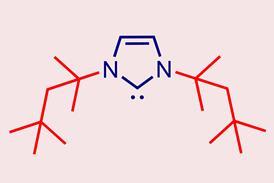How to be a creative scientist

Five tips to boost your blue-sky thinking
Creativity is more often associated with the arts, but as Albert Einstein said: ‘the greatest scientists are artists as well’. Creativity is undoubtedly an important factor in scientific breakthroughs and general research. In 1980, the journal Tetrahedron introduced a prize specifically to recognise creativity in organic chemistry. ‘We recognise that creativity is an essential ingredient to a scientist’s ability to open a new branch of research,’ explains Jan Willem Wijnen, executive publisher at Elsevier. ‘It is related to the ability and mind-set to see possibilities where others do not and during discussions of the prize committee that uniqueness of the work of nominees is taken into account.’



